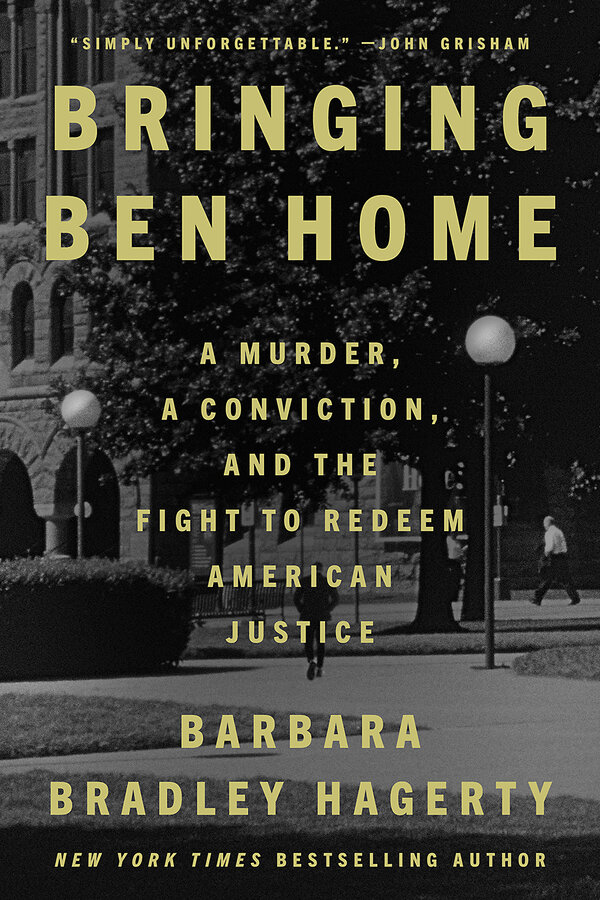
In March 1987, a white businessman was robbed, beaten, and left for dead on a Dallas street. Ben Spencer, a Black man, was convicted in the murder, but that conviction was overturned and a second trial granted. Though Spencer had proclaimed his innocence from the beginning, he was found guilty of aggravated robbery and sentenced to life in prison. It would take over three decades before he was exonerated.
As Barbara Bradley Hagerty describes in “Bringing Ben Home: A Murder, a Conviction, and the Fight To Redeem American Justice,” getting freed can be a terribly long, torturous process for people who find themselves wrongfully convicted – especially Black defendants, who, studies show, are significantly more likely to be wrongfully convicted than their white counterparts. Spencer’s saga is a depressing tale of a rushed and incomplete police investigation, a lousy defense attorney, prosecutorial misconduct, false testimony, and witnesses compromised by cash rewards.
In late 1989, Spencer reached out from prison to Centurion Ministries, a nonprofit that seeks to free the wrongfully convicted. After a decade of exchanging letters and examining the trial record, Jim McCloskey, the head of the group, visited Spencer and became convinced of his innocence. But the stubborn reluctance of the Texas legal system to acknowledge Spencer’s wrongful conviction proved to be a tall barrier.
The problem, Hagerty writes, is twofold. First, the rush to solve a crime – especially a highly publicized one – is a powerful incentive that leads some in the legal system to cut corners. That means police, witnesses, prosecutors, and even well-meaning groups that offer rewards for tips leading to an indictment are often an impediment to justice. Second, the legal system’s reluctance to acknowledge its mistakes virtually ensures that some wrongs are never corrected – even when questions are raised about the evidence and witnesses underpinning a conviction.
Ultimately, Spencer was freed because a small number of heroes – people like McCloskey and Cheryl Wattley, a Texas law professor – worked tirelessly to bring forward evidence that would force a new hearing.
Hagerty – a former reporter for the Monitor and NPR – took an active interest in the case. She briefly moved to Dallas and, with a few others, attempted to re-create the crime scene to prove that witnesses who placed Spencer at the scene were wrong. Later, she wrote two magazine articles for The Atlantic that pointed out many other problems in the case, and, thanks to this national visibility, pressure to revisit Spencer’s conviction mounted.
Finally, help came from an unexpected source. John Creuzot, the new head of the Dallas County district attorney’s office – which had prosecuted Spencer’s case in the first place – decided to review the case. Eventually, he was persuaded that witnesses who had placed Spencer at the crime scene were lying or irrevocably compromised. He asked the Texas Court of Criminal Appeals to vacate Spencer’s robbery conviction, and the court earlier this year agreed.
Ultimately, Spencer gained his freedom because a few determined individuals would not let the case rest. What would have happened if one of them had looked away or abandoned the effort? As one advocate told Hagerty, “It comes down to, really, serendipity. … That’s what makes this so difficult. We should not be having to depend on luck.”
This is not a storybook ending; it is an unvarnished tale of justice too long delayed. While he was in prison, Spencer’s wife, Debra, divorced him – with his permission – and married another man. Spencer’s son – born while he was in jail awaiting his first trial – grew up not knowing his father. After his release, Spencer and Debra (who by then had divorced her second husband) remarried, and Spencer began to build a relationship with his son.
Hagerty’s book is about more than the injustice dealt to one man. This is a compelling, important, and deeply unsettling account because it makes clear the extent to which the legal cards can be too easily stacked against poor people and members of minority groups.
